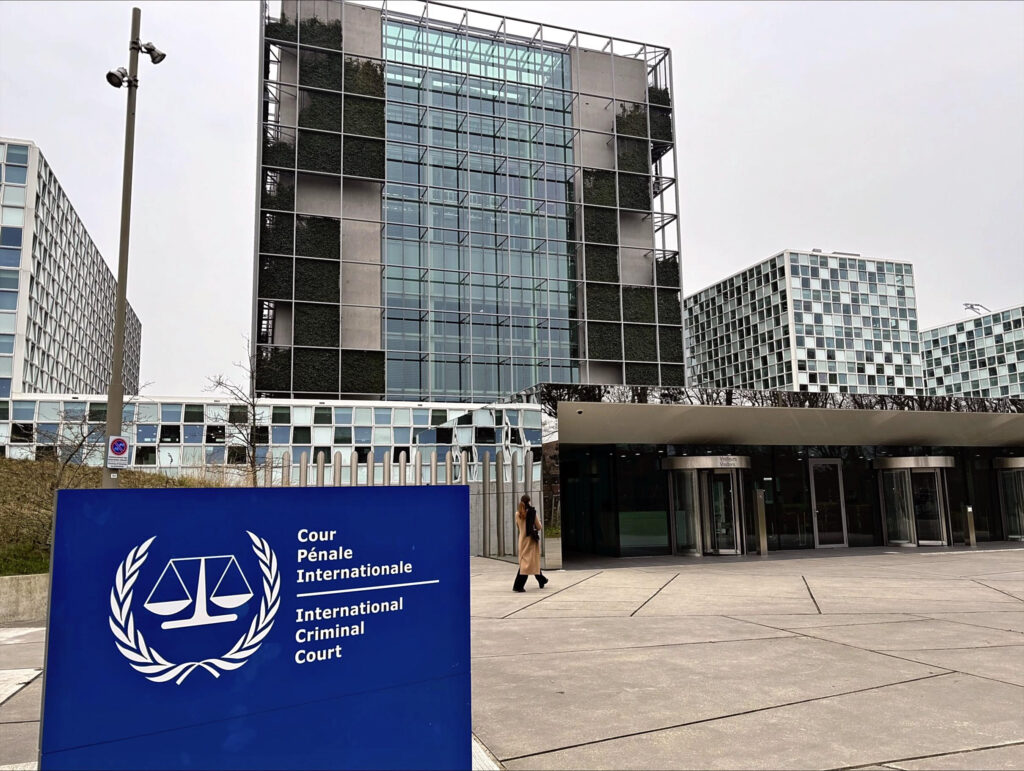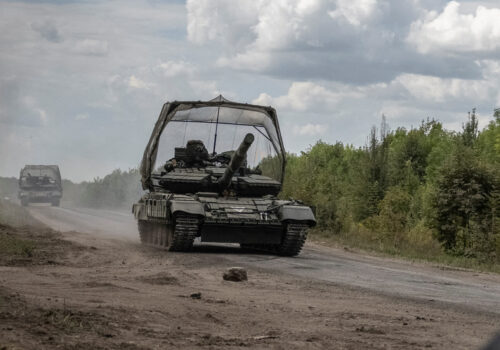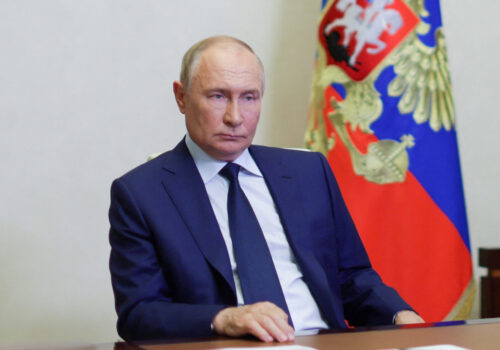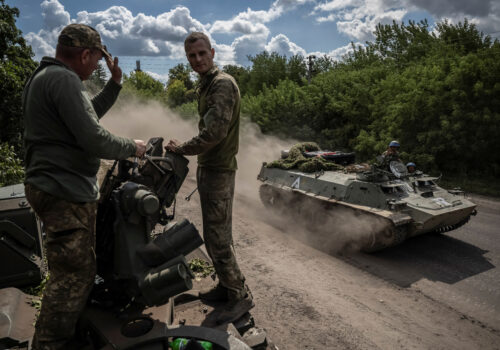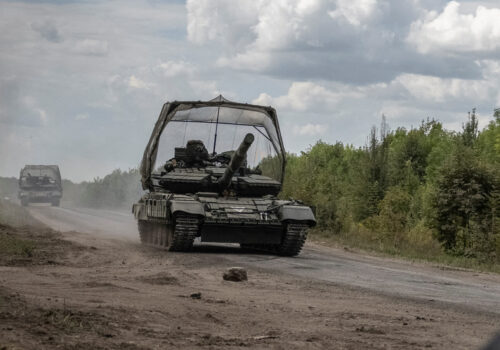
Ukraine ratifies Rome Statute but must address concerns over ICC jurisdiction
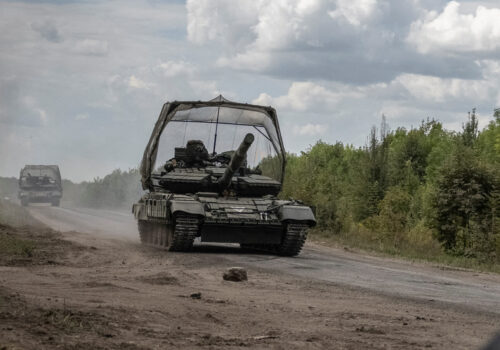
On August 15, Ukrainian President Volodymyr Zelenskyy submitted a bill to the Ukrainian parliament on ratification of the Rome Statute of the International Criminal Court (ICC), which would make Ukraine an ICC member state. Parliament duly ratified the bill on August 21, and President Zelenskyy signed it into law on August 24.
This is a positive step for accountability, and is in line with the Ukrainian government’s ongoing support for international justice efforts. Unfortunately, however, the news was marred by the Ukraine government’s reported invocation of a provision which would deny the ICC jurisdiction over war crimes committed by its nationals for seven years.
Ukraine signed the Rome Statute in 2000, but did not ratify it. In 2001, the Constitutional Court of Ukraine ruled on the constitutionality of ratifying the Rome Statute, finding that Article 124 of the Ukrainian Constitution prohibited “supplementing the judicial system of Ukraine” and therefore was incompatible with the Rome Statute. This Article was amended in 2016, removing what was considered “the final obstacle” to ratification. In August 2019, the Deputy Head of the President’s Office indicated that ratification was a priority. A draft law was submitted to the Office of the President in September 2019, but was later withdrawn.
Despite Ukraine not ratifying the Rome Statute, the ICC has limited jurisdiction over genocide, war crimes, and crimes against humanity (“core international crimes”) committed in Ukraine. Under Article 12(3) of the Rome Statute, states not party to it can lodge a declaration accepting the ICC’s jurisdiction. Ukraine has done so twice: In April 2014 for crimes committed on its territory between November 21, 2013, and February 22, 2014, and in September 2015 for crimes committed from February 20, 2014 onward.
The ICC therefore has jurisdiction for core international crimes committed on Ukrainian territory from November 21, 2013. In March 2022, the ICC Prosecutor requested and then opened an investigation into the Situation in Ukraine. This investigation covers the situation as a whole and therefore extends to all perpetrators regardless of nationality. The arrest warrants issued so far have exclusively been for Russian officials, but the Prosecutor could request arrest warrants for Ukrainians if there is sufficient evidence.
Stay updated
As the world watches the Russian invasion of Ukraine unfold, UkraineAlert delivers the best Atlantic Council expert insight and analysis on Ukraine twice a week directly to your inbox.
Ratifying the Rome Statute is a laudable step forward for Ukraine’s commitment to international justice. Ukraine’s Article 12(3) declarations were a sensible and critical stopgap, as became clear after Russia’s full-scale invasion in February 2022. Ratification adds additional depth to President Zelenskyy’s prioritization of accountability by ensuring that Ukraine maintains this commitment to justice after the war ends and by binding it to the obligations of states parties, including the provision of support and cooperation to the ICC.
Further, the bill seems to include the ratification and acceptance of the Kampala Amendments, which added the crime of aggression to the Rome Statute, without invoking the option to opt out of the ICC’s jurisdiction over aggression. The crime of aggression covers the use of force by a state against the “sovereignty, territorial integrity, or political independence” of another state, such as through invasion.
For states parties, whether the ICC has jurisdiction over the crime of aggression without a UN Security Council referral depends on the victim and aggressor states’ ratification of the Kampala Amendments and invocation of the opt out option. Under the Rome Statute, the Court cannot exercise jurisdiction over aggression when committed on the territory of or by nationals of a state not party to the Rome Statute, which means the ICC does not have jurisdiction over acts of aggression by Russia, which is not a state party to the Rome Statute.
Ratifying the Kampala Amendments therefore doesn’t personally benefit Ukraine in the short term, and Ukraine is still moving forward with efforts to establish a special tribunal on the crime of aggression. At the same time, it does show a good faith effort to expand the ICC’s jurisdiction over aggression regardless.
Ukraine has sparked debate by reportedly invoking Article 124 of the Rome Statute in the bill for ratification. This Article allows a state, upon becoming a party to the Statute, to declare that for seven years after the Statute’s entry into force for that state, it does not accept the ICC’s jurisdiction for war crimes committed by its nationals or on its territory.
Article 124 was introduced during the Rome Conference after governments, especially France, expressed concerns that their personnel involved in UN peacekeeping missions “could be subject to politically motivated or frivolous prosecutions.” It therefore only offers protection for war crimes, not genocide or crimes against humanity. Article 124 has rarely been used. The ICC Assembly of State Parties adopted an amendment deleting it in 2015, though this has not yet entered into force.
In the Article 124 declaration, Ukraine seems to invoke only the active personality protection, which would shield Ukrainians from prosecution for war crimes committed anywhere, but not the territorial jurisdiction protection, which would shield anyone from prosecution for war crimes committed on Ukrainian territory. Ukraine likewise tried to limit the ICC’s jurisdiction in its second Article 12(3) declaration to “crimes against humanity and war crimes committed by senior officials of the Russian Federation” and Kremlin-controlled separatist leaders active in east Ukraine after 2014, despite a 2012 decision that rejected similar attempts.
Eurasia Center events
Ukraine’s approach presents several legal questions. First, it is not certain how Ukraine’s various declarations will interact with each other, as laid out by Dr. Kevin Jon Heller, Dr. Andreas Zimmerman, Dr. Tom Dannenbaum, and in additional discussions on X (formerly Twitter). The Article 124 declaration may supersede and thus modify or terminate the Article 12(3) declarations, or the ICC judges could decide that the Article 12(3) declarations preclude an Article 124 declaration. Alternatively, the Article 124 and Article 12(3) declarations may apply concurrently, such that Ukrainian nationals will be shielded from prosecution for war crimes committed outside Ukraine but not those committed inside Ukraine. Regardless, it does seem clear that the Article 124 declaration cannot retroactively change the ICC’s jurisdiction, so any effects would start once Ukraine’s ratification enters into force.
This leads to a second legal question of how the Article 124 declaration will affect the ICC’s jurisdiction. It is not clear if Ukraine’s Article 124 declaration can only limit the ICC’s active personality jurisdiction for war crimes without also limiting its territorial jurisdiction. Without previous examples on this exact issue, legal experts have looked to scholarship, the Rome Statute itself, and analogous ICC decisions. However, there is not yet any consensus on the issue.
Some view the active personality and territorial questions as serving distinct purposes and therefore read Article 124 as disjunctive. Others find it “highly unlikely” that the ICC would allow states to shield only their own nationals from legal scrutiny, and therefore expect that judges may view the Article 124 active personality and territorial jurisdiction limitations as a “package deal.”
Ukraine’s ratification of the Rome Statute is welcome news, but that doesn’t excuse the negative effects of the Article 124 declaration. On a practical level, Ukraine risks an adverse decision from the judges in interpreting the declaration. Namely, there is a chance the judges will rule that the declaration modifies the earlier Article 12(3) declarations and that this applies to both active personality and territorial jurisdiction. This would mean that the ICC will not have jurisdiction over Russian war crimes committed in Ukraine for seven years upon the Rome Statute’s entry into force for Ukraine, representing “a spectacular own goal.”
The Article 124 declaration also threatens Ukraine’s well-earned goodwill and “moral high ground” within the international community. President Zelenskyy has been an advocate for global justice and for the ICC itself. The declaration’s implications undermine this, indicating “a lack of confidence in the ICC’s capacity to fairly adjudicate war crimes in this conflict.” Any impunity stemming from the declaration would further erode trust in Ukraine, in line with President Zelenskyy’s own observations that Russia’s impunity in Syria played a “significant part” in its aggression against Ukraine.
Ukraine’s ratification inevitably comes with the risk that Ukrainians will be subject to prosecution for any war crimes they may commit, but Ukraine can mitigate this by holding its citizens accountable. Ukraine therefore shouldn’t need the protection Article 124 offers, and that protection certainly shouldn’t be considered so significant that it justifies the negative side effects.
Luckily, under the Rome Statute, an Article 124 declaration “may be withdrawn at any time.” The Ukrainian government has the chance to be a powerful and long-lasting champion for justice globally. To maintain its credibility and reputation, it must seriously consider withdrawing the Article 124 declaration from its ratification of the Rome Statute, accepting the ICC’s full jurisdiction.
Celeste Kmiotek is a staff lawyer for the Strategic Litigation Project at the Atlantic Council. The Strategic Litigation Project works on prevention and accountability efforts for atrocity crimes, human rights violations, and corruption offenses around the world.
Further reading
The views expressed in UkraineAlert are solely those of the authors and do not necessarily reflect the views of the Atlantic Council, its staff, or its supporters.

The Eurasia Center’s mission is to enhance transatlantic cooperation in promoting stability, democratic values and prosperity in Eurasia, from Eastern Europe and Turkey in the West to the Caucasus, Russia and Central Asia in the East.
Follow us on social media
and support our work
Image: The premises of the International Criminal Court is pictured at The Hague, Netherlands, on March 11, 2024. ( The Yomiuri Shimbun )
